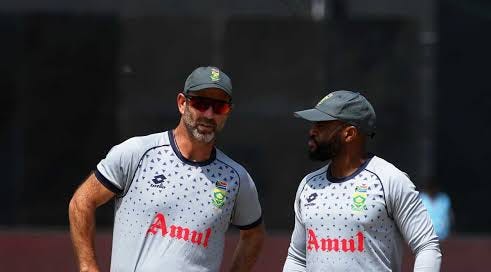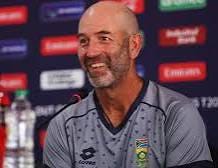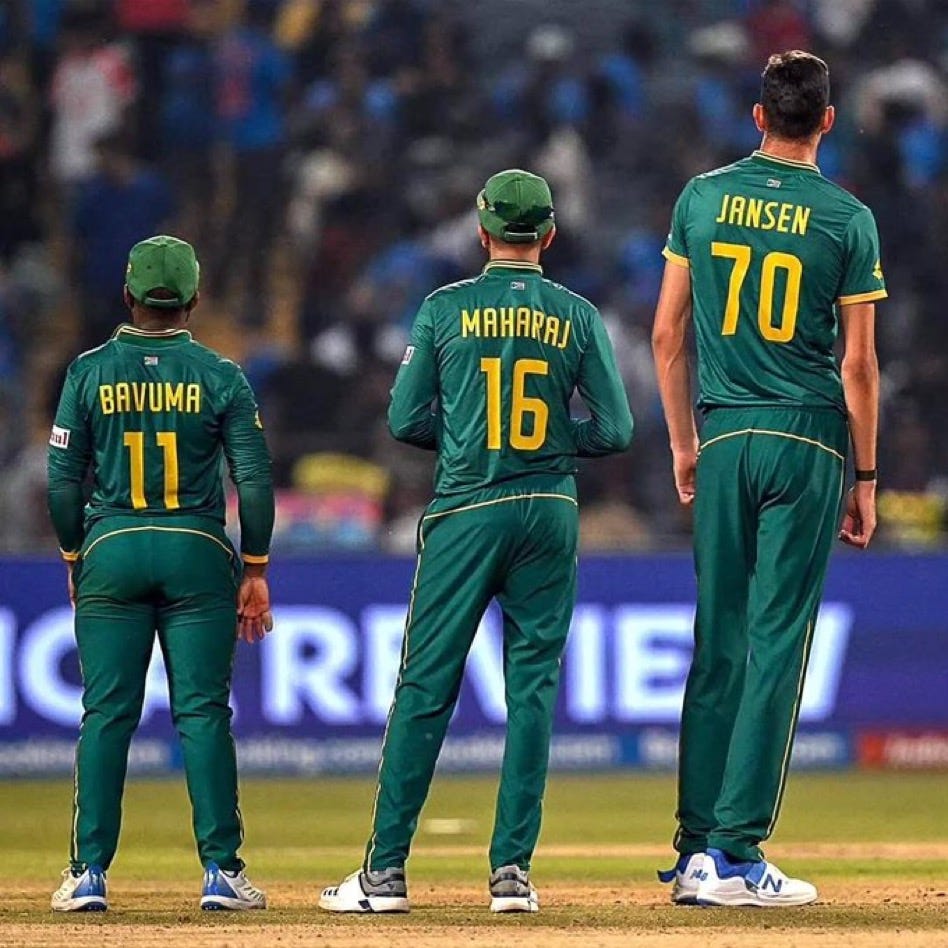Apparently, Rob Walter’s job as white-ball coach of the Proteas is ‘on the line’ unless the national team provides good reason at the ICC Champions Trophy to honour his contract until the 2027 World Cup in South Africa. It is an extraordinary scenario.
Outside of two ICC World Cups South Africa has made Test cricket the priority whenever there was a significant schedule clash and have triumphantly reached the final of the World Test Championship to be played at Lord’s in June. During that time they have won only four of their last 12 ODIs and lost their last six before their opening Champions Trophy game against Afghanistan this Friday.
They arrived in Pakistan for the tri-series matches against the hosts and New Zealand with a 12-man squad containing six debutants. Walter could not be sure of the composition of the rest of the squad or when they might arrive until the SA20 had concluded. He has become used to doing the job with one hand tied behind his back – but that doesn’t make it any easier.
It is tempting to give all of the credit to the national coaches, Shukri Conrad and Walter, for sharing a laudable goal and working so effectively in tandem for the good of the greatest format. But one of the many uncomfortable truths is that they were ‘helped’ in that direction by the wishes of many of the country’s best cricketers.
It is churlish and unfair to suggest that ‘player power’ was responsible for the absence of, say, Kagiso Rabada, Heinrich Klaasen and David Miller from ODI series in the UAE against Afghanistan and Ireland in the middle of last year. But it is equally obvious that such assignments are a waste of their time, commitment and physical resources. Another uncomfortable truth rarely spoken of is the fact that all international matches are not equal. Some are inconsequential and barely deserving of the status.
Whenever Rabada has played for the Proteas in the last two years he has been fully fit, refreshed, motivated and, most importantly, highly effective and close to his best in every game. Likewise in the SA20 which his team, MI Cape Town, won after collecting a pair of wooden spoons in the first two years of the tournament.
Whereas Conrad has been able to select from the best players available (ever since the abysmal circumstances in which his tenure started with a ‘C’ team travelling to New Zealand) Walter has presided over the debuts of 23 players in ODI and T20I cricket. He has spoken often about the importance for the national teams of widening their player base and has, magnanimously but impractically, shouldered the ‘blame’ for failing to win at the same time.
Yet another uncomfortable truth is that Conrad’s Test teams failed to meet the racial composition target in any fixture leaving the white ball teams to ‘catch up’ in order to meet the annual average requirement. And yet that is the reddest of herrings, convenient as some critics find it as a reason for the poor results. Unlike in years and decades past, not a single player of colour has been promoted prematurely or undeservingly.
So many debutants over the course of two years would destabilise any team, whatever their skin tone happened to be. On one, single occasion Walter mentioned the parameters within which his starting XI needed to be selected when asked why Ottneil Baartman had not played against Pakistan. He replied, honestly, that Nqaba Peter was chosen ahead of him to address the perennial shortage of black African players.
Peter is the most exciting young spinner in the country and has been included in national squads because he was the standout bowler in the CSA T20 Challenge last season. It is neither his nor Walter’s doing that an exciting leg-spinner was included in a team ahead of a talented seamer in order to satisfy a criteria evolved over decades to satisfy administrators and politicians rather than coaches or cricketers.
The apparent ‘talk’ that Walter could lose his job comes on the back of reaching the semi-finals and final of the last two ICC World Cups, a record far better than any other national coach. The man enjoys as much if not more respect from the national players as any of his predecessors stretching back over 25 years. He is meticulous, honest and forthright. Every current and aspirant national player knows exactly where they stand with Walter.
There are only two criteria by which the current white-ball coach can be reasonably measured. The first is by performances in ICC events and the second by how successful his transition-planning is during the build-up to the 2027 World Cup here in South Africa and immediately thereafter when half the team will be 35 or older and their replacements, with a valuable taste of international cricket, will have to step up. By which time Walter may be gone. He wouldn’t be the first coach whose best work is appreciated in his wake.






I think it’s fair to say he’s done an excellent job in the circumstances considering the various balls he’s had to juggle. He deserves significant credit, and he deserves to be treated with respect by the administrators.